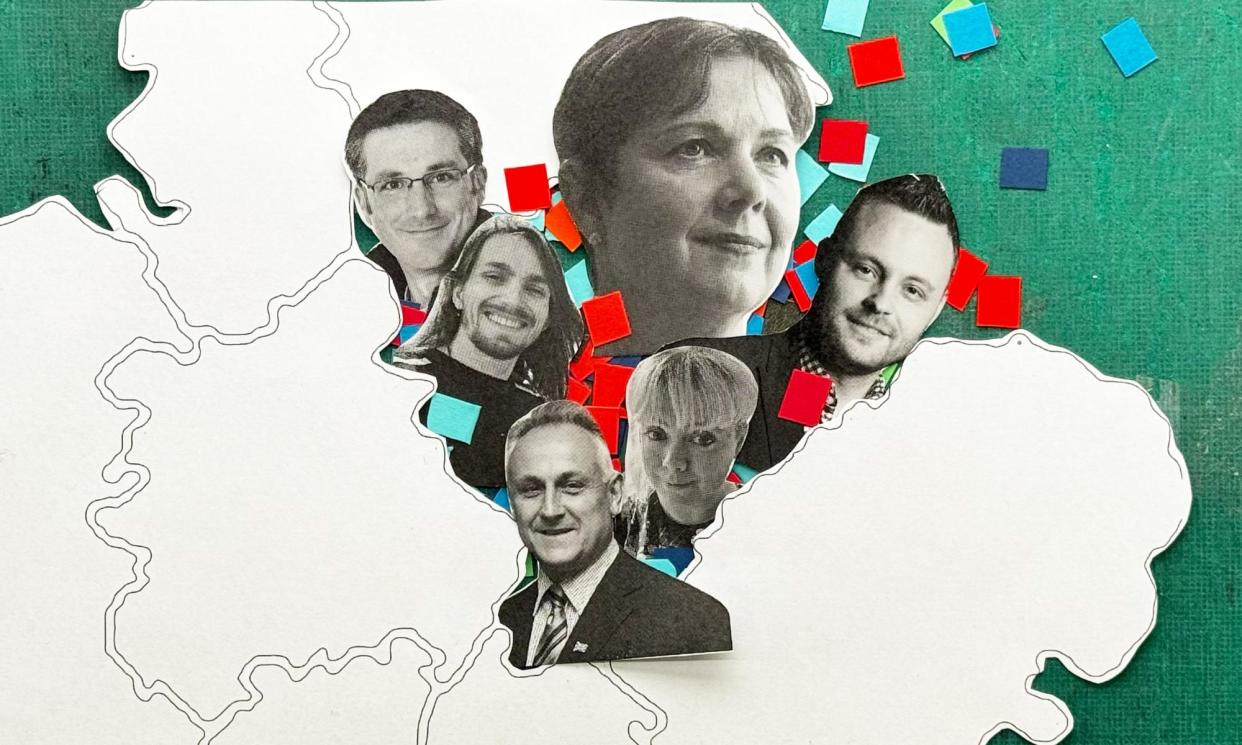‘We end up with nothing’: east Midlands mayoral candidates say role could transform region

The Conservatives are “not taking accountability” for their part in leaving regions such as the east Midlands to suffer with poor infrastructure, growing inequalities and a skills gap, Labour’s candidate for the region’s first mayor said.
Claire Ward, the former MP for Watford, said there was not enough to keep young people in the east Midlands and that people had “lost hope”.
“I’m hugely frustrated at the state of our region,” she said. “I look at the opportunities for my kids, for other kids, and there’s not enough here to retain them. I fear that we just constantly lose them to London. It’s got to change. We haven’t got what we deserve for decades.”
The east Midlands has long been at the bottom of the pecking order when it comes to investment. It consistently receives the lowest public spending per person – 11% below the UK average – and ranked either bottom or near the bottom for spending on transport, health, education and economic affairs between 2016 and 2021.
“We’re not the north, we’re not the south, and when people talk about the Midlands, they tend to mean Birmingham and the West Midlands. And that means there’s this uncertainty about where we are or what we are,” said Ward.
On the back of a new devolution deal signed by the government last year, a mayor for the region will be elected for the first time next week with greater spending control over areas such as transport and education, along with a £1.5bn pot of government funds.
Those vying for the job say it will help put the east Midlands on a better footing with the likes of the West Midlands and Greater Manchester, which have had mayors fighting their corner for years.
“In the absence of a really powerful voice for the area, it’s the place you go through on the train,” said Ben Bradley, the Conservative MP for Mansfield and leader of Nottinghamshire county council, now competing for the mayoral job.
“We end up with nothing because we have 18 different councils with 18 different answers about what our priorities should be.”
Bradley already has his hands full juggling two roles. If elected, he will step down from the council but remain as an MP until the next general election so as not to trigger an expensive byelection, he said.
It is his time on the council, and frustrations at not being able to get stuff done because of “finances, ringfences and short term-ism”, that have convinced him of the need for a mayor.
“Local government is not sustainable. The current system will fall down if something doesn’t change, because there just isn’t enough money to deal with ever increasing demand and costs,” he said. “This is the solution – it’s more freedom, more funding.”
His main goals will be fixing the region’s roads, boosting the bus network and drawing in more investment from businesses, he said.
“It’s about bringing powers from London to here. We’re right in the heart of the country and we’ve got everything going for us, but a historic lack of investment means our infrastructure needs a lot of work. That’s the exciting opportunity with this,” said Bradley.
The east Midlands combined authority will be one of the broadest in the country, encompassing Nottingham, Nottinghamshire, Derby and Derbyshire, but crucially not Leicester, the largest city in the region, and Leicestershire.
Leicester’s Labour city mayor, Peter Soulsby, said there was “no good reason for [the new mayor role] or any obvious benefits from it”, but other leaders in the county said being excluded would leave them “relegated to the second division”.
Bradley said: “It is a shame, but I do think they will join in the future because the business community in Leicestershire is incredibly frustrated by the fact that all this investment is going to go in to the region and they’re not part of it.”
There are many who argue that the new role isn’t needed – the Reform candidate, the Derby mayor, Alan Graves, plans to try to abolish the role if elected into it.
A public consultation last year found that only 42% of respondents backed the plans for a new mayor. Some said it would be a “waste of money” and centralise power too much.
“We can see mayors have been transformational – just look at what Andy Burnham has done in Manchester,” said Ward. “They can bring investment in, and make decisions about the locality in a way in which government just can’t. But it’s an education process for lots of people.”
Ward was the Labour MP for Watford from 1997 to 2010 and moved to Nottinghamshire 12 years ago, where she now sits as chair of the Sherwood Forest Hospitals NHS foundation trust.
Her plans for the role include boosting the skills needed for the green energy sector, integrating health checks with skills checks, and launching a “visit east Midlands” tourism campaign.
“We need more recognition about the amazing things that we have in this region, and to encourage the people who live and work here to champion them,” Ward said.


